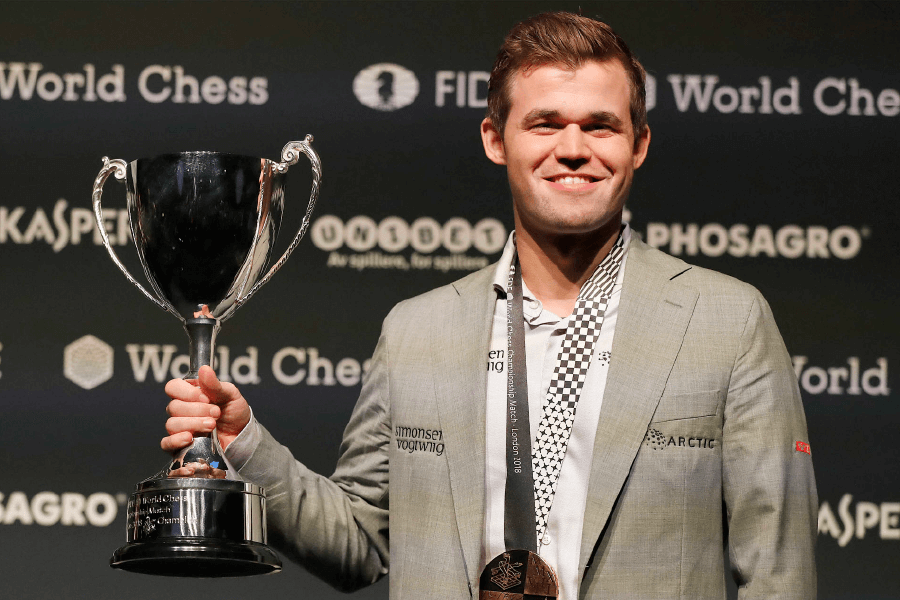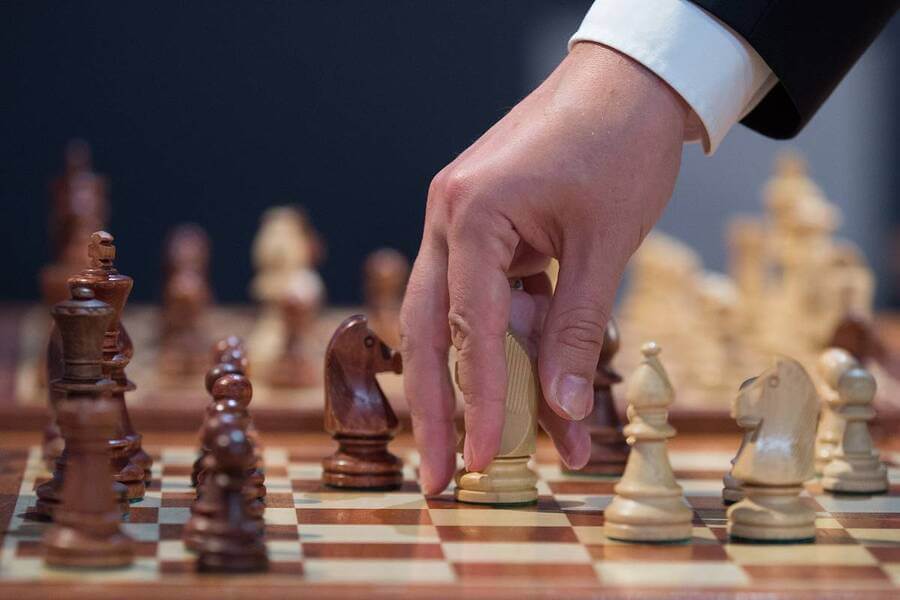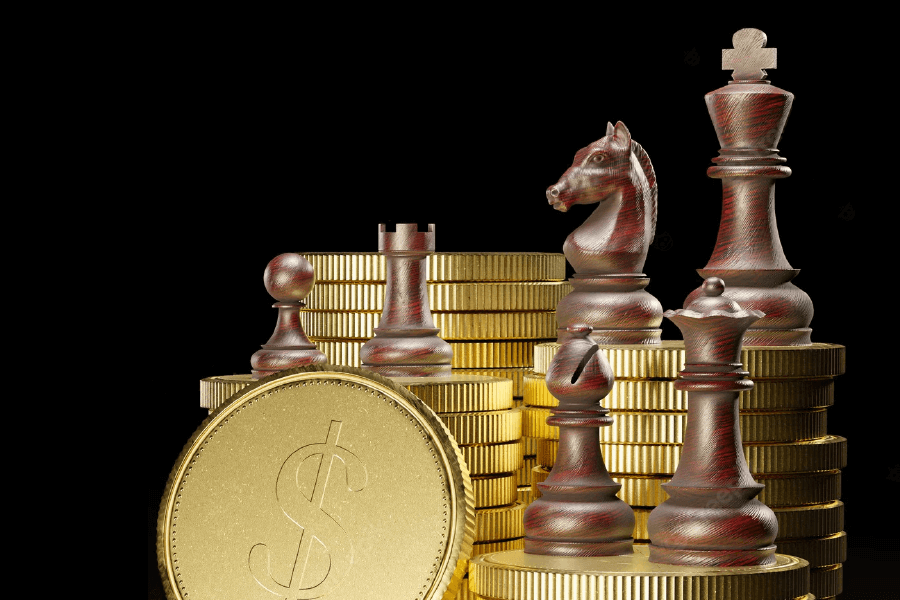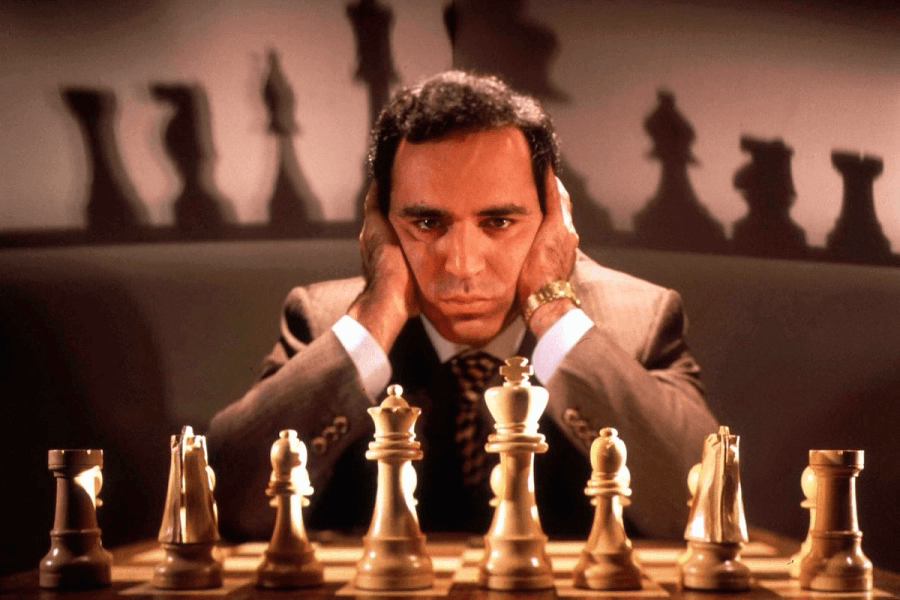Chess Tournaments
World Chess Championship – “Battlefield” For Grandmasters
Ever since humans existed, one of our primal instincts is competitiveness. We compete with each other in every aspect and field in life, including chess. Therefore, the World Chess Championship was invented, becoming the biggest chess contest of all time, where grandmasters all around the planet participate in. This article provides you with anything you need to know about the World Chess Championship.
What Is The World Chess Championship?
The World Chess Championship was first contested in 1886 to select the world champion in the game of chess. The event is still held as a match between the current champion and a challenger today. The winner of the Candidates Tournament, which precedes the World Championship, is the challenger. Magnus Carlsen of Norway is the current world champion, who has held the title since 2013.

The championship has been on a two-year cycle since 2014, with the 2020 match being postponed until 2021 owing to the COVID-19 pandemic. The next event will be taking place in 2023. Though all players are welcome to compete in the world championship, there are distinct tournaments for women, under–20s and younger age groups, seniors, and computers. There are other worldwide chess tournaments such as Rapid, blitz, correspondence, problem solving, and Fischer Random Chess.
Rules & Regulations of World Chess Championships 2022
There are fourteen games in the World Championship Match. Each game has a time limit of 120 minutes for the first 40 moves, 60 minutes for the following 20 moves, and then 15 minutes for the remaining moves, with a 30 second increment starting at move 61. The player who scores 7.5 points or more first wins the World Championship Match. At that time, no more games were played. If the score is tied after fourteen games, the tie-break is used.

Starting with move 1, a match of four games with a time control of 25 minutes + 10 seconds increment every move is played during the tie-break. If the score remains the same after the first game, the second match of two games is played with a time control of 5 minutes + 3 seconds increment every move, beginning with move 1. If the score is still tied, a second 2-game match with the same time control is played; this method can be repeated up to five times. A sudden death game is played if the score is still tied after five matches (ten games). The player with the white pieces gets five minutes, while the player with the black pieces gets four minutes. After the 60th move, both players get a 2 second increment every move starting with move 61. In the event of a tie, the player who has the black pieces wins.
Announcing World Chess Champions’ Prize Money
According to World Chess, FIDE’s commercial partner, the prize pool was €2 million, split 60 percent for the winner and 40 percent for the runner-up. The prize fund would have been shared 55 percent to 45 percent in favor of the tiebreak winner if the match had been equal after 14 classical games.
As a result, the world’s best chess players may earn a ton of money from the game. Magnus Carlse, the present world chess champion, has earned more than $2 million from chess victories in the last five years. The world’s other top grandmasters also perform admirably. Each year, tournament winners Fabiano Caruana, Veselin Topalov, Levon Aronian, Alexander Grischuk, Vladimir Kramnik, Anish Giri, Sergey Karjakin, Hikaru Nakamura, Boris Gelfand, and Wesley So can receive up to half a million dollars. With that amount of money, the chess legends can spend on high-end chess sets to practice at anytime and anywhere they want with ease.

In chess, the world championship has always been the king, and whoever surpasses the champion has always been rewarded appropriately.
List Of World Chess Champions 2022
|
No. |
Champion | Years | Nationality |
| 1 | Wilhelm Steinitz |
1886-1892 |
Austrian, American |
|
2 |
Emanuel Lasker | 1894-1910 | German |
|
3 |
Jose Raul Capablanca | 1921 | Cuban |
| 4 | Alexander Alekhine | 1927-1934, 1937 |
Russian, French |
|
5 |
Max Euwe | 1935 | Dutch |
| 6 | Mikhail Botvinnik | 1948-1954, 1958, 1961 |
Soviet, Russian |
|
7 |
Vasily Smyslov | 1957 | Soviet, Russian |
| 8 | Mikhail Tal | 1960 |
Soviet Latvian |
| 9 | Tigran Petrosian | 1963, 1966 |
Soviet Armenian |
|
10 |
Boris Spassky | 1969 | Russian |
| 11 | Bobby Fischer | 1972 |
American |
|
12 |
Anatoly Karpov | 1975, 1978, 1981, 1993, 1996, 1998 | Soviet, Russian |
| 13 | Garry Kasparov | 1985-1995 |
Russian |
|
14 |
Vladimir Kramnik | 2000, 2004, 2006 | Russian |
| 15 | Alexander Khalifman | 1999 |
Russian |
|
16 |
Ruslan Ponomariov | 2002 | Ukrainian |
| 17 | Rustam Kasimdzhanov | 2004 |
Uzberk |
|
18 |
Veselin Topalov | 2005 | Bulgarian |
| 19 | Viswanathan Anand | 2000, 2007-2012 |
Indian |
|
20 |
Magnus Carlsen | 2013-present |
Norwegian |

